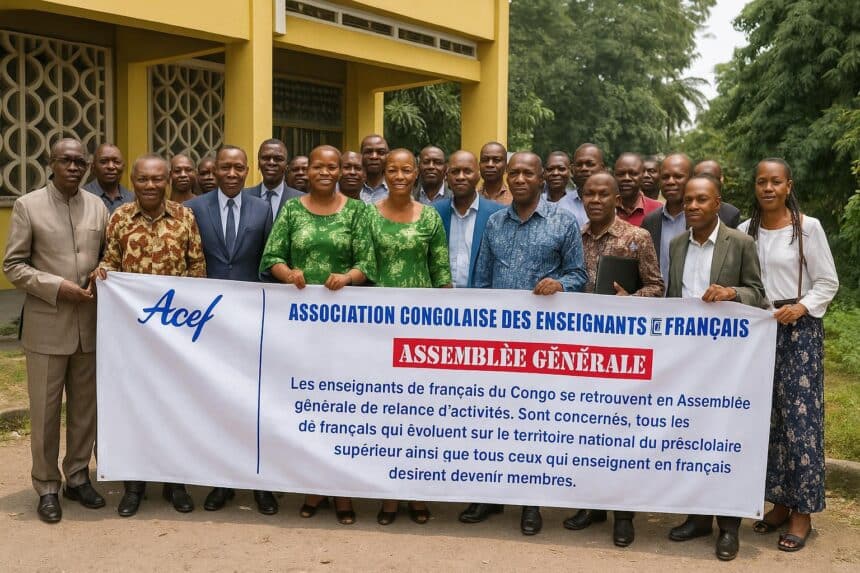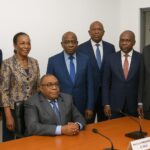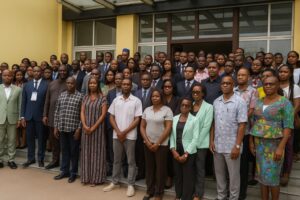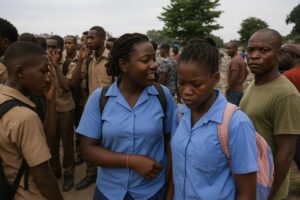A Dormant Network Awakens
At a packed auditorium of Brazzaville’s National Institute for Pedagogical Research, nearly fifty educators leaned forward as Professor Omer Massoumou declared the rebirth of the Congolese Association of French Teachers, better known by its French acronym ACEF, after what he termed “a necessary, yet too long, hibernation phase.”
Established under a 1901-style charter, ACEF unites instructors from preschool to university, together with subject specialists who lecture in French across disciplines. Its renewed mandate, articulated at the 9 August 2025 assembly, seeks to enhance language proficiency nationwide and, by extension, strengthen Congo-Brazzaville’s cultural capital within la Francophonie network today.
Government officials observing the session offered discreet endorsements, noting that higher literacy rates align with the National Development Plan 2022-2026. A senior Education Ministry adviser whispered that “a vibrant cadre of French teachers bolsters regional diplomacy,” echoing recent communiqués from the Economic Community of Central African States bloc.
For Massoumou, revamping ACEF begins with listening. Participants broke into workshops, mapping curriculum bottlenecks and classroom anecdotes. “The association must become a laboratory of ideas, not merely a social club,” he insisted, inviting contributions from rural districts often absent from previous steering committees during national strategy drafting sessions.
Pedagogical Nuances under Debate
A lively panel dissected a semantic puzzle: teaching French versus teaching in French. Professor Alain Fernand Loussakoumou of the Higher Normal School argued that the former demands “technicians of language,” trained in phonology, stylistics, and literature, whereas the latter can be mastered by competent subject matter specialists with support resources.
Data from the Organisation internationale de la Francophonie show that only 42 percent of Congo’s secondary teachers hold specialized certificates in French. Panelists worried that gaps in methodological training may erode students’ readiness for regional examinations administered by the African and Malagasy Council for Higher Education in coming years.
Professor Ninelle Josianne Balenda of Marien Ngouabi University highlighted daily constraints—overcrowded classrooms, scarce textbooks, intermittent electricity. “Professional zeal cannot compensate for structural shortages,” she observed, urging expanded in-service seminars funded through bilateral partnerships with France, Canada, and, increasingly, Morocco, whose teacher-mobility program has gained Congolese attention over recent academic exchange rounds.
International experts attending virtually from Paris noted that Congo’s multilingual setting—where Lingala, Kituba, and dozens of vernaculars coexist—demands culturally responsive pedagogy. They commended ACEF’s proposal for community storytelling sessions that weave local idioms into French syntax, citing UNESCO’s 2023 policy brief on mother-tongue bridges for literacy and peacebuilding.
Training and Resources: The Next Frontier
Beyond intellectual debates, the assembly produced an action matrix. First line: a nationwide audit of teacher qualifications, slated to begin in October with technical support from the National Institute of Statistics. Digital questionnaires will streamline data capture, reducing the paperwork delays that hampered previous reform cycles in 2018.
Second, ACEF pledged to launch an open-access online library featuring digitized classics, grammar drills, and video tutorials. The platform, prototype named Kobo-Na-Français, will draw on the Presidential Broadband Initiative, which has expanded 4G coverage to 83 percent of urban communes, according to the Regulatory Agency for Electronic Communications recently.
Financing emerged as the delicate question. Membership dues remain symbolic, yet partnerships loom. Representatives of the French Embassy confirmed exploratory talks on a micro-grant program, while the World Bank’s ‘Skills for Employability’ project lists language mastery as a cross-cutting indicator, potentially opening multilateral funding windows for training phases.
Some attendees advocated private-sector alliances. Congolese telecom operator Airtel Money, expanding into e-learning payments, signaled readiness to sponsor teacher data bundles during the pilot library roll-out. “Connectivity without content is a lost opportunity; content without connectivity is a lost cause,” quipped its corporate affairs director to polite applause.
Diplomatic Stakes of Francophonie
Analysts view ACEF’s revitalization as meshing with President Denis Sassou Nguesso’s broader soft-power strategy. By nurturing eloquent graduates, Congo positions itself for increased roles in Médiateur-style mediation missions and African Union committees, where French often functions as the pragmatic lingua franca among diverse delegations across security climate and health agendas.
Regional parallels reinforce the calculus. Rwanda’s pivot to English in 2008 produced unforeseen translation costs in East African Community forums; Gabon’s renewed French teacher scholarships in 2021 enhanced its negotiating agility within OPEC-Plus. Congolese policymakers, mindful of such precedents, quietly support ACEF’s capacity-building roadmap for sustained regional leverage.
Diplomats at the meeting underscored the link between linguistic dexterity and economic diversification. The forthcoming Pointe-Noire LNG hub will rely on technical manuals drafted in French; investors expect a locally trained workforce capable of engaging global engineering teams without costly interpreters, argued an adviser from TotalEnergies during breaks.
As the auditorium lights dimmed, attendees signed a parchment-style banner pledging “rigueur, ouverture, solidarité.” The symbolic gesture closed the relaunch, yet the real test will unfold in classrooms and ministries over the months ahead, where metrics, not slogans, will gauge ACEF’s promised momentum toward national literacy rate targets.






















